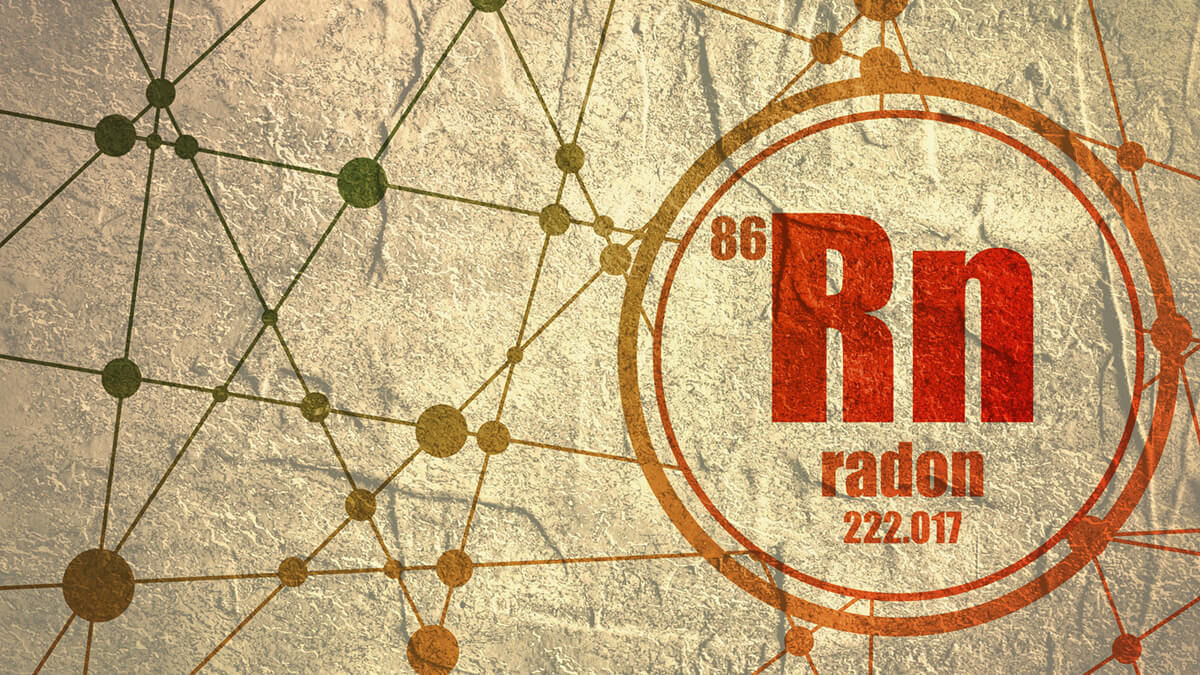If you’ve ever bought a home, you may have had it tested for radon during the inspection process. Depending on where you live in the United States, radiation from naturally occurring radon can be a health hazard, though many people know relatively little about this gas. Find out more about radon, how public health programs can help limit your exposure, and how you can earn a bachelor’s in public health and help others limit their exposure.
Everything You Don’t Know About Radon
Radon is an odorless, colorless, tasteless gas that occurs naturally in places where uranium, radium, and thorium break down in rocks, soil, and groundwater.1 The gas can enter our homes and buildings through cracks and gaps, and breathing it in can cause health problems. Professionals with public health careers offer some key facts about the gas, as well as tips on how to limit your exposure:2
- Home radon levels can change over time due to excavation, urban development, and seasonal weather. Because of this, homes should be tested during different times of the year or if there have been significant changes in the landscape.
- Children can be exposed to radon at school in areas where radon levels are high. It is important as public health professionals to continually monitor schools and day cares for the gas, given that children spend a large amount of time in these buildings. This is, or should be, part of the regulatory process in these facilities.
- Pets are also subject to radon exposure, sometimes even more than people since they are home all day. While the primary focus of environmental health is not the health of our pets, it is something that deserves consideration.
- Radon occurs naturally, and everyone receives some exposure. The level of exposure depends both on how much naturally occurs in an area and its ability to leak into homes and buildings.
- Radon is the second-leading cause of lung cancer in the U.S. Smoking in a home with high levels of radon increases your risk of developing lung cancer.
- According to estimates from the U.S. Environmental Protection Agency (EPA) and the surgeon general’s office, radon is responsible for more than 20,000 lung cancer deaths in the U.S. each year.
- Your risk of health effects from radon exposure depends on how much radon you are exposed to in your home, work, and other places you spend time.
- Igneous rock, soil, and well water are some of the main sources of radon. Some areas have higher levels of radon than others.3
- According to the U.S. Geological Survey, radon in water moves slower than it does in air.4
- The EPA offers state maps with information on radon levels. Areas with Zone 1 designation have the highest levels of radon exposure, with predicted average indoor radon screening levels greater than 4 picocuries per liter (pCi/L) of air. Zone 2 areas have predicted average indoor radon screening levels between 2 and 4 pCi/L. Zone 3 areas have predicted average indoor radon screening levels of less than 2 pCi/L.5
- The EPA recommends taking action to reduce radon levels in homes that have a radon level at or above 4 pCi/L.
Public Health Programs to Reduce Radon Exposure
The U.S. Centers for Disease Control and Prevention says that a home radon test is an important first step for anyone worried about exposure. Reliable test kits can be purchased at hardware stores. If your test reveals high levels of the gas, there are steps you can take to reduce those levels.6
A qualified radon mitigation contractor uses specific technical knowledge and skills to work on your home and lower your radon levels. In many states, radon mitigation professionals must be licensed, certified, or registered to install radon mitigation systems that meet state requirements. These experts use methods that either prevent radon from entering your home or reduce radon once it is present. The best radon reduction method for your home depends on the type of foundation you have, and it can involve sealing cracks in the foundation, house pressurization, or soil suction.
How Public Health Majors Can Help
If keeping the public informed about serious health issues and their solutions is important to you, it might be time to join the ranks of today’s public health majors training to help communities. At Walden University, you can earn a BS in Public Health, an important first step toward a public health career. Walden’s bachelor of science in public health program can give you the skills and knowledge to create and maintain healthy, productive, and safe societies.
If you’re an adult learner, earning a degree from an accredited online college is a great way to get your bachelor’s. With online classes rooted in the principles and competencies of public health, Walden’s public health program can prepare you to put your public health degree to work in the field. Don’t put off earning a college degree—learn more about how to get started.
Walden University is an accredited institution offering a BS in Public Health degree program online. Expand your career options and earn your degree using a convenient, flexible learning platform that fits your busy life.
1Source: www.cdc.gov/radon/index.html
2Source: www.cdc.gov/features/protect-home-radon/index.html
3Source: www.cdc.gov/features/trackingnetwork/index.html
4Source: https://certmapper.cr.usgs.gov/data/PubArchives/radon/georadon/3.html
5Source: www.epa.gov/radon/state-maps-radon-zones
6Source: www.epa.gov/sites/production/files/2016-02/documents/2013_consumers_guide_to_radon_reduction.pdf
Walden University is accredited by The Higher Learning Commission, www.hlcommission.org.




